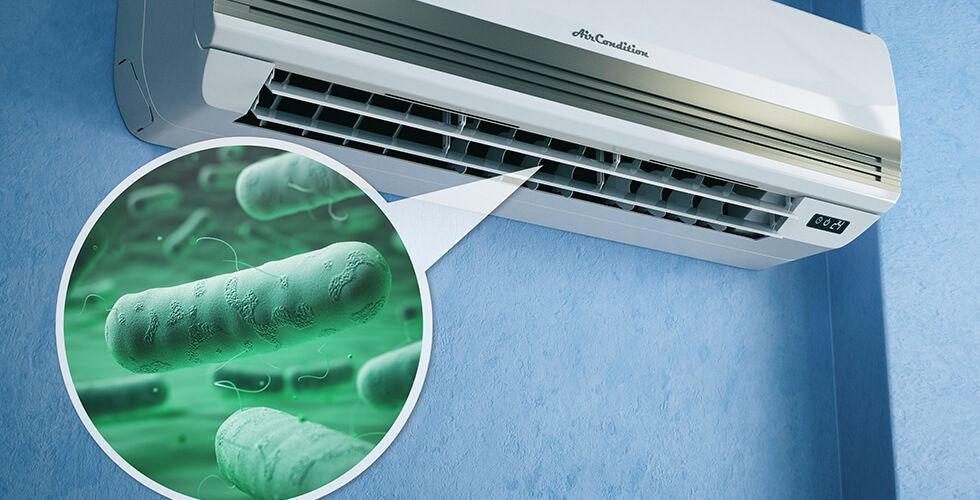
On sweltering summer days, air conditioning feels like a lifesaver — keeping rooms cool, controlling humidity, and making life bearable. But without proper maintenance, your AC can do more than chill the air; it can circulate germs, allergens, and toxic chemicals that put your health at risk.
When air conditioners malfunction or go uncleaned, they can become breeding grounds for bacteria, fungi, and viruses. This is at the heart of Sick Building Syndrome — a cluster of symptoms like headaches, congestion, coughing, fatigue, and difficulty concentrating that often worsen the longer you stay in an affected building.
Research backs the link. A 2023 study found office workers in air-conditioned spaces were more likely to develop allergy symptoms, had poorer lung function, and missed more work than those in non-AC workplaces. Poorly maintained systems can spread harmful chemicals like benzene and formaldehyde, as well as dangerous microbes.
One notorious example is Legionella pneumophila, the bacteria behind Legionnaires’ disease, a severe pneumonia contracted from inhaling contaminated water droplets. Hospitals, hotels, and office buildings have all been implicated when AC water systems weren’t properly cleaned.
Fungal growth is another hazard. Species like Aspergillus and Cladosporium thrive in damp ventilation systems, posing serious risks to vulnerable individuals. Even viruses — like norovirus — have been documented spreading through AC units.
Ironically, a well-maintained AC can reduce airborne pathogens, but dirty filters and neglected systems reverse that benefit. Low humidity from constant cooling can also dry out your nasal passages, weakening your body’s natural defenses against infection.
The takeaway? Air conditioning isn’t the enemy — neglect is. Regular cleaning, filter changes, and proper humidity control can keep your system a source of comfort, not illness. In short: treat your AC like your health depends on it… because it just might.

